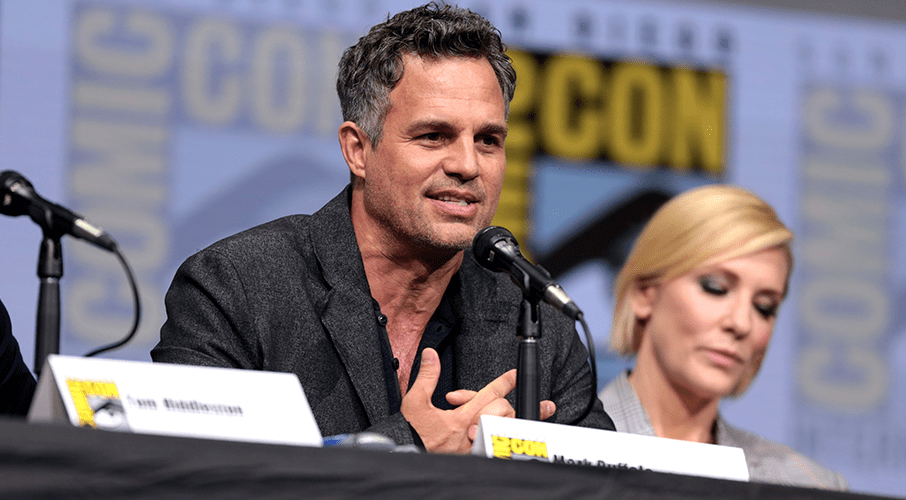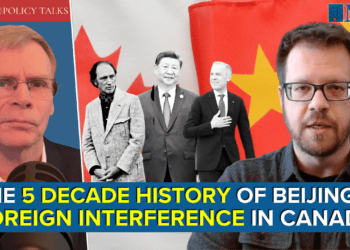
This article originally appeared in the Toronto Star.
By JP Gladu, June 27, 2022
In recent years, Canada has become a touchpoint for Hollywood stars eager to demonstrate their environmentalist props. Motivated by commitments to sustainability, while publicly declaring support for Indigenous peoples, celebrities like Leo DiCaprio, Neil Young, Mark Ruffalo and Jane Fonda feel free to lecture Canadians about both environmental matters and their treatment of Indigenous peoples.
Infatuation with stardom means Hollywood pronouncements receive outsized media attention. A celebrity with few, if any connections to Canada, let alone to Indigenous communities, gets 100 times more coverage than a First Nations chief speaking on behalf of her community. It hurts that the commentary can be so ill-informed and destructive of what we have worked toward. Simplistic notions — resource development is bad, all Indigenous peoples oppose oil and gas projects — may be wildly off the mark, but this doesn’t deter the stars.
Mark Ruffalo called out the Coastal Gas Link Pipeline and the Canadian government for ignoring Indigenous peoples. This was totally inaccurate. The pipeline has the support of all 20 First Nations along its route. Indigenous communities are purchasing a 10 per cent stake in the project and hope to buy an even bigger share. Hundreds of First Nations people and dozens of Indigenous companies are employed by the project. Our communities will receive millions of dollars in benefits, which will improve conditions for our people.
Not everyone supports the pipeline and other projects. In this, our communities are like all others. But unlike the pipeline opponents, First Nations leaders have the prevalent backing of their people, openly expressed in meetings or chief and council elections. Critics, meanwhile, have not secured widespread support in a single pipeline community. Instead, they find favour primarily among urban sympathizers, international environmental organizations and, yes, Hollywood stars. None of these people will live with the consequences of their interventions, which promise only more poverty and cultural dislocation.
There is more than pipeline construction underway on our lands. Our communities are extensively involved with commercial fishing, forestry, mining, and other infrastructure projects, all of which meet our exacting environmental standards and provide substantial benefits to our communities.
We have turned down projects that did not meet our requirements — for example, the proposed Northern Gateway bitumen pipeline — and we have devoted years to understanding the local and global impacts of projects being undertaken on our lands. First Nations communities are also exploring geothermal energy production, investing in electrical transmission lines, and completing contracts related to mining, hydroelectric and other projects. For the first time in over 100 years, we share in national prosperity, albeit still at a low level.
We have worked hard to achieve the power to manage our lands and determine our future, spent years in court securing our rights. We lobbied politicians and built ties with governments, corporations and non-Indigenous peoples. The United Nations Declaration on the Rights of Indigenous Peoples is now the law in Canada and in the province of British Columbia; it recognizes what the celebrities do not, that Indigenous communities have the right to use their traditional lands as they wish.
We did not undertake this struggle only to be lectured by non-Indigenous celebrities who have never met us and did not even visit our communities before telling us what to do.
Indigenous folks have a term for outsiders who tell us what to do about development. They are environmental colonizers — unwittingly the inheritors of their destructive predecessors: missionaries, government officials and social engineers, all of whom believed they knew what was best for our people and, paternalists to the core, did not hesitate urging us to follow their lead.
The earlier colonizers were wrong, and we paid an enormous price for their arrogance. The Hollywood folks are reprising a familiar and unhappy play, with an ending that only increases the marginalization of our people and erodes our languages and cultures. We have trouble believing this is really what the celebrities think that they are doing.
We wish these media personalities would come to Canada and spend time in our communities. They would, we suspect, be surprised. Our commitment to environmental protection, both local and global, is unbroken. We are strong in spirit and culture, and proud of what our people have done to plan for their future. We engage in economic development to give our communities the money we need to rebuild languages, strengthen relationships with the land, and bring health and joy back to people who have been hurting for far too long.
Indigenous communities are shedding the shackles of welfare dependency, determined to get government off our backs, working to recover from centuries of colonization and outsider interference. The last thing that we need is more non-Indigenous peoples telling us what to do with our land, its resources and our future.
Hollywood, we ask you to take the time to get to visit us, witness the transformations that are underway. Learn how we are making economic and natural resource development work for our communities — really for the first time in post-settlement history. Move beyond simplistic notions of Indigenous peoples and environmental action. You will receive a warm reception. You will change your mind about the future use of our lands.
In the interim, please stop professing to speak on behalf of Indigenous peoples or that you know what is best for our communities. We can do that for ourselves just fine.
JP Gladu is an Indigenous business leader, member of Sand Point First Nation and a senior fellow at the Ottawa-based Macdonald-Laurier Institute.





